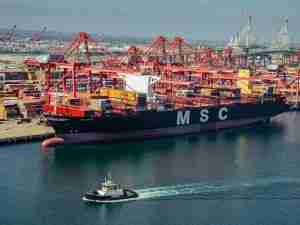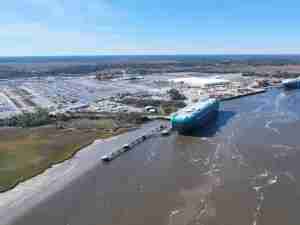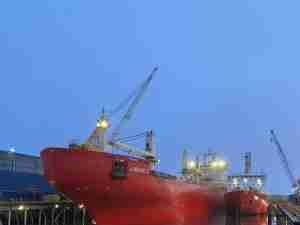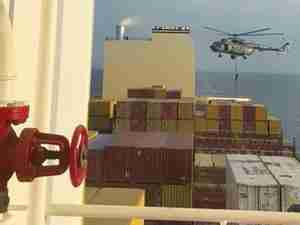Jinhui says China to weigh through 2013/14
By: Reuters | Aug 30 2013 at 12:59 PM | Maritime
Jinhui vice president Raymond Ching told a conference call on Thursday that even though the Oslo-listed group saw positive signs from the United States and some improvement in Europe, the oversupply in the drybulkmarket would carry on this year and next because of weaker Chinese growth.
"Reality shows that China's growth is slowing and that impacts charter rates significantly", Ching said.
Jinhui's second-quarter revenue dropped 10 percent to $54.6 million while net profit plunged 87 percent to 1.1 million compared with the second quarter of 2012.
"In addition (to weaker Chinese growth) there are more and more regulations, safety regulations, and all this will dry up ways to cut costs. So we still believe we are in a very challenging environment," he said.
Jinhui competes with China COSCO, the world's biggestbulkshipper, Oslo-listed Golden Ocean, Denmark's Torm and hundreds of privately heldbulkshippers in Asia, the United States, Scandinavia and Greece.
All are struggling with low charter rates for iron ore, coal, grain and other commodities that are shipped inbulk.
Ching, said the second-quarter charter rate rise came after restocking activities of iron ore and coal in China in mid-June.
But he added that charter rates remain far below sustainable levels. They have been weakening since the financial crisis started in 2008 and were worsened by a boom in new ship orders.
JinhuiShipping's average time-charter earnings (earnings after bunker fuel costs are paid) were down to $13,840 per day per ship in the second quarter, compared with $16,189 in the year-earlier period.
At peak of the dry-bulkcycle, just before the financial crisis in 2008, time-charter spot rates soared as high as $200,000 per day for the biggest dry-bulkships.
This led to a boom inshippinginvestment and growing debts, which Jinhui and sector peers are now still struggling with.
Jinhui owned 38 vessels at the end of June and operates two chartered-in vessels on which it is making heavy losses since they were contracted in November 2008 and May 2009 at rates of $43,506 and $36,000 respectively per day.
It now rents out those ships at less than half that price. The contracts expire in October 2013 and February 2014.
Jinhui's business has been on a downward slope since 2008, when the firm had sales of $474 million. In 2012, sales fell to $234 million from $305 million in 2011. Net profit slid to just $35.6 million last year, from $238 million in 2008. (Reuters)











